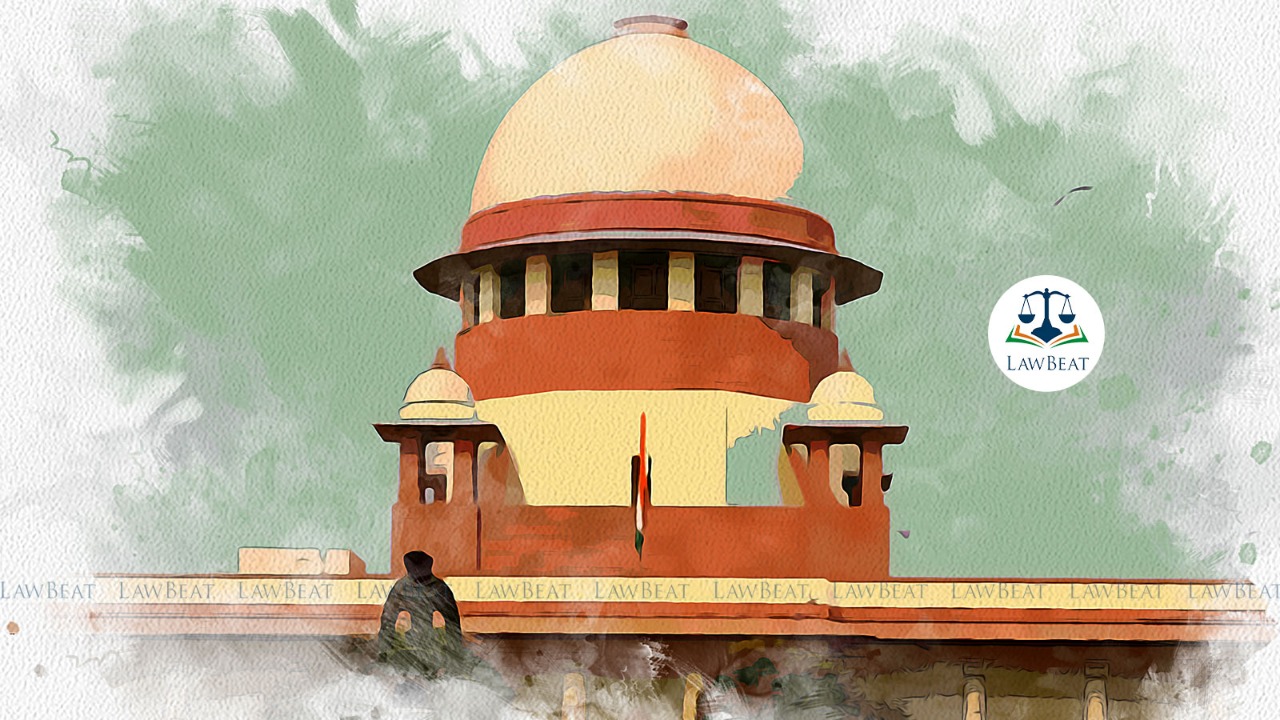Maintainability of anticipatory bail by accused in custody for another crime: Supreme Court leaves legal question open

While it is well established that anticipatory bail cannot be granted where the accused has already been arrested, the question of whether anticipatory bail can be granted if a person is arrested in a case other than the one for which she has already been arrested looms large, a division bench of the Supreme Court left this law question open.
While it is settled law that where the accused has already been arrested, the anticipatory bail application would not lie in that particular case, the question of whether anticipatory bail would be maintainable if a person is arrested in a case other than the one for which she has already been arrested looms large.
A division bench of Justice Surya Kant and Justice V. Ramasubramanian of the Supreme Court had an occasion recently to decide the issue authoritatively in Tejesh Suman v. State of Rajasthan [SLP (Crl) No. 11122/2022].
In Tejesh Suman, the Rajasthan High Court had vacated the interim protection awarded to the petitioner because he was taken into custody in another matter.
Advocate Namit Saxena, appearing for the accused before the Supreme Court, stated that different High Courts have taken different positions on the issue.
The High Court of Rajasthan in Sunil Kallani v State of Rajasthan [CRLMB – 9155/2019] held that “….a person who is already in custody cannot have reasons to believe that he shall be arrested as he stands already arrested. In view thereof, the precondition of bail application to be moved under Section 438 Cr.P.C. “reasons to believe that he may be arrested” do not survive since a person is already arrested in another case and is in custody whether before the police or in jail.” It was further held that the anticipatory bail would not lie and would not be maintainable if a person is already arrested and is in the custody of police or judicial custody in relation to another criminal case which may be for a similar offense or different offenses.
Diametrically opposite to this, the Bombay High Court in Alnesh Akil Somji v State of Maharashtra [Anticipatory Bail Application No. 2857 of 2021], while disagreeing to confirm the view of the Rajasthan High Court in Sunil Kallani, held that First, there is no such bar in CrPC or any statute which prohibits Session or the High Court from entertaining and deciding an anticipatory bail, when such person is already in judicial or police custody in some other offense and Second, the restriction cannot be stretched to include arrest made in any other offense as that would be against the purport of the provision.
The Single judge at the Bombay High Court rather went one step ahead and wrote – “One cannot and must not venture, under the garb of interpretation, to substantiate its meaning than the plain and simple particular though provided by statute. What has not been said cannot be inferred unless the provision itself gives room for speculation. If the purpose behind the intendment is discernible sans obscurity and ambiguity, there is no place for supposition.”
Advocate Namit Saxena further submitted that recently, the Allahabad High Court dealt with the issue. The final order dated 09.12.2022 passed by the Allahabad High Court in Rajesh Kumar Sharma v CBI [Criminal Misc Anticipatory Bail Application u/s 438 CrPC No. – 4633/2022] reflects that the Bombay High Court’s decision in Alnesh Akil Somji was not noted and the Single judge chose to follow the decision of the Rajasthan High Court in Sunil Kallani and held that as the applicant was in custody in connection with another case, the anticipatory bail application was not maintainable.
However, in the facts and circumstances of the present case, it was claimed that the petitioner Tejesh Suman was taken into custody and later released on regular bail, rendering the petition infructuous. However, the Supreme Court ruled that the contested order would not be considered precedent for the petitioner's other pending cases. The legal question was left open to be resolved in an appropriate case.
Case Title: Tajesh Suman v. State of Rajasthan
